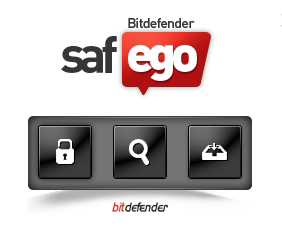Facebook users are still putting their friends at risk

24.6% of Facebook BitDefender Safego users have at least one “friend” in the contact list sending out a network scam. In any case, mailings are done by computers of such “friends”. This was shown by the results of Safego's beta-stage project , which ended June 28, designed to protect users of the world's largest social network from fraudulent messages. Since July 2011, the free Safego service from the international anti-virus company BitDefender has been available to all Facebook users in the full final version.
“This statistic confirms the simple fact that everyone who uses social networks should learn caution - not to expose both his friends and himself. Today, it is not enough just to believe that none of those whom you personally know will give you malicious content. On behalf of your friends, you can act — and act — scammers that have infiltrated their computers and, therefore, have access to their accounts, ”says Katalin Koshoi, head of the online threats laboratory at BitDefender. Actions of the program on behalf of a person are, of course, possible not only on Facebook, but also on any other information exchange system: given that many users rarely change their passwords, a malicious program can only know the user's password once. Further, sending on behalf of this person can be performed both from his own computer and from any other.
The forms that scam takes on social networks vary widely : from classic "Nigerian letters" to "messages from the administrator" and links to malicious content, including dubious applications, phishing pages, and executable files infected by targeted viruses. Because of the huge size of the networks and the consistently high proportion of overly gullible users, millions of people fall into the regular traps. Scamming is very profitable: there are even entire scammer offices (including distributed ones) in which employees perform that part of the fraudulent work that is still beyond the power of artificial intelligence.
')
Facebook daily audience in Russia is relatively small - 1.6 million people. The number of active users visiting Facebook at least once a month is 5 million. The forecast at the end of 2011, taking into account the observed growth rate of the Russian audience, is about 7 million. One of the reasons for the growing interest of Russian users to Facebook is that the network does not lay out in open access lists of personal contacts of users - and it is unlikely to ever do it, because it operates under US law.
Source: https://habr.com/ru/post/123121/
All Articles